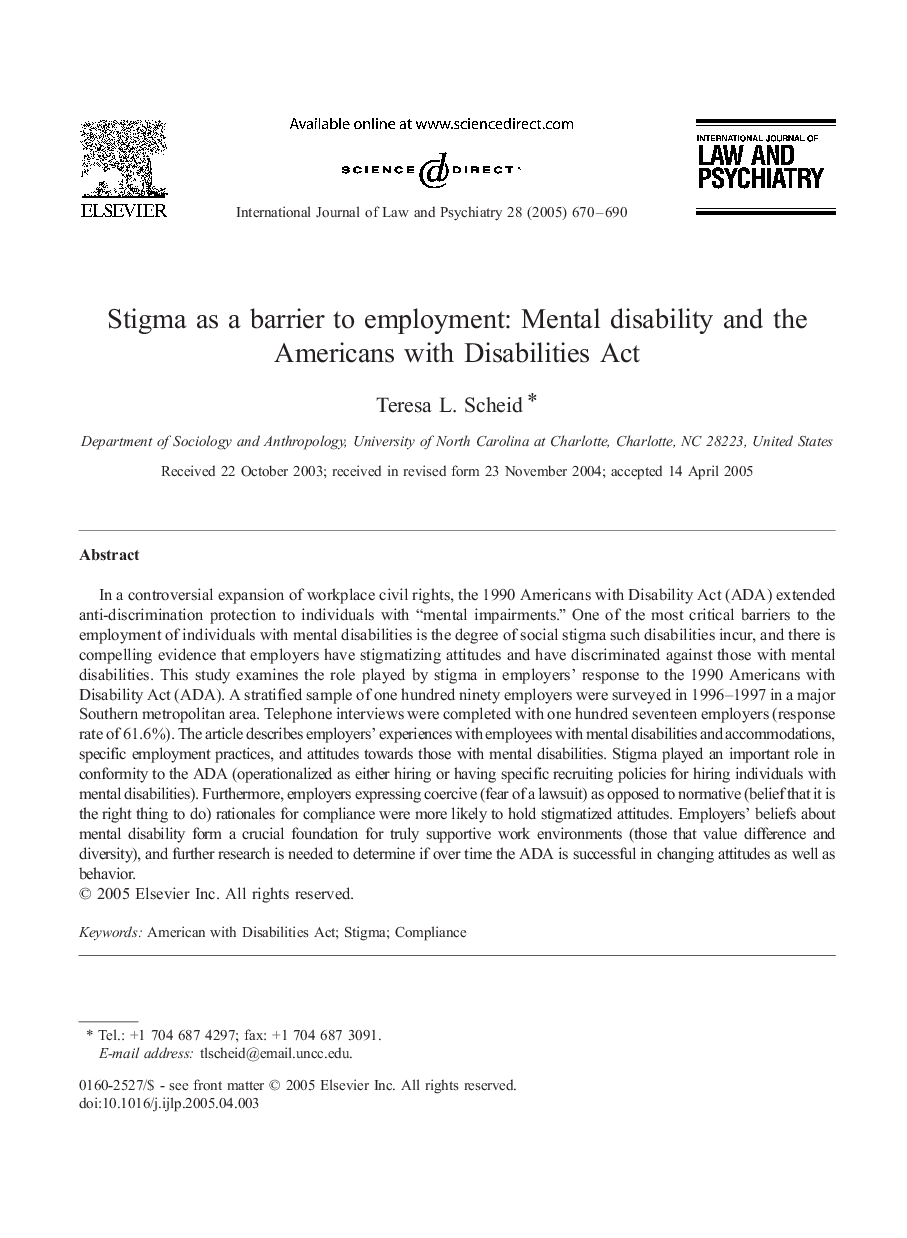| Article ID | Journal | Published Year | Pages | File Type |
|---|---|---|---|---|
| 9623318 | International Journal of Law and Psychiatry | 2005 | 21 Pages |
Abstract
In a controversial expansion of workplace civil rights, the 1990 Americans with Disability Act (ADA) extended anti-discrimination protection to individuals with “mental impairments.” One of the most critical barriers to the employment of individuals with mental disabilities is the degree of social stigma such disabilities incur, and there is compelling evidence that employers have stigmatizing attitudes and have discriminated against those with mental disabilities. This study examines the role played by stigma in employers' response to the 1990 Americans with Disability Act (ADA). A stratified sample of one hundred ninety employers were surveyed in 1996-1997 in a major Southern metropolitan area. Telephone interviews were completed with one hundred seventeen employers (response rate of 61.6%). The article describes employers' experiences with employees with mental disabilities and accommodations, specific employment practices, and attitudes towards those with mental disabilities. Stigma played an important role in conformity to the ADA (operationalized as either hiring or having specific recruiting policies for hiring individuals with mental disabilities). Furthermore, employers expressing coercive (fear of a lawsuit) as opposed to normative (belief that it is the right thing to do) rationales for compliance were more likely to hold stigmatized attitudes. Employers' beliefs about mental disability form a crucial foundation for truly supportive work environments (those that value difference and diversity), and further research is needed to determine if over time the ADA is successful in changing attitudes as well as behavior.
Keywords
Related Topics
Health Sciences
Medicine and Dentistry
Forensic Medicine
Authors
Teresa L. Scheid,
